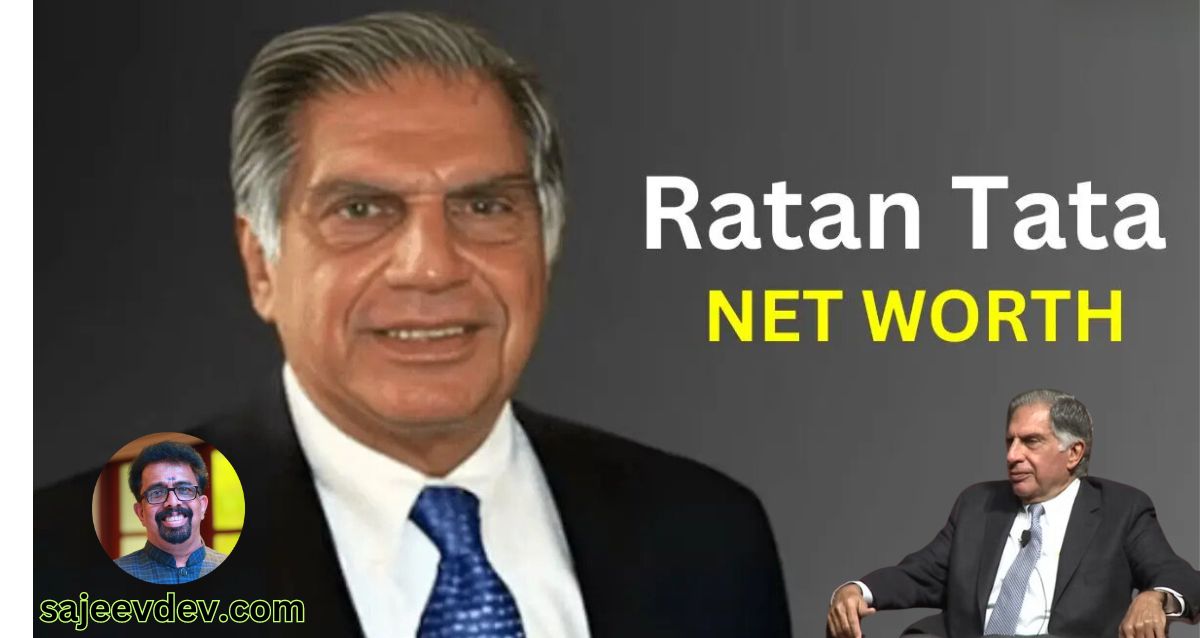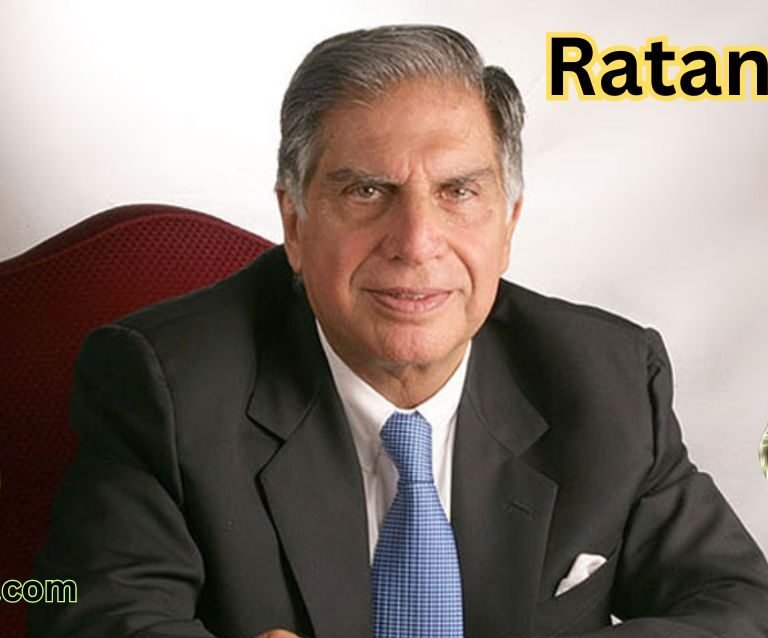Ratan Tata, an iconic figure in Indian industry, was born on December 28, 1937, into a family with a deep-rooted legacy of entrepreneurship
Ratan Tata, an iconic figure in Indian industry, was born on December 28, 1937, into a family with a deep-rooted legacy of entrepreneurship. He is best known for his pivotal role as the former chairman of Tata Sons, which is the holding company of the Tata Group, a conglomerate known for its ethical business practices and vast portfolio ranging from steel to software, and from automobiles to hospitality.
In 1991, Ratan Tata took the helm of Tata Group during a transformative period, steering the organization towards modernization and global expansion. His leadership style is characterized by a blend of humility and strong conviction, focusing on innovation and social responsibility. Under his stewardship, Tata Group introduced several successful ventures, notably the Tata Nano, which aimed to provide affordable transportation to the masses. Tata’s vision extended beyond mere profitability; it was rooted in the philosophy of community development and sustainability.
Throughout his tenure, Ratan Tata championed various initiatives that underscored the group’s commitment to social welfare, including significant investments in education, healthcare, and rural development. These milestones reflect his belief that businesses should play a vital role in uplifting society and not merely in generating wealth. His strategic foresight allowed the Tata Group to make calculated global forays, acquiring international brands and diversifying its interests.
Ratan Tata stepped down as chairman in 2012, but his legacy continues to resonate within the industry and among corporate leaders. As he is often regarded as a mentor and an inspirational leader, Ratan Tata’s impact on India’s industrial landscape is significant. His entrepreneurial approach and vision for a sustainable future remain critical to understanding the evolving dynamics of Indian industry today.
The Hurun India Rich List 2024 Overview
The Hurun India Rich List is a prominent annual publication that ranks the wealthiest individuals in India. Established by the Hurun Research Institute, this list serves as an important barometer of the economic landscape, showcasing the financial success of various entrepreneurs, business leaders, and influential personalities across diverse industries. The 2024 edition exhibits the dynamic change in wealth patterns, reflecting shifts in market conditions and entrepreneurial prowess.
The methodology employed by Hurun to assess individuals’ net worth involves a comprehensive analysis that takes into account various factors, including shareholding in publicly traded companies, personal investments in private businesses, real estate assets, and other assets adjusted for liabilities. Such a multifaceted approach ensures a more accurate representation of an individual’s financial standing, making the Hurun India Rich List a reliable reference for investors, economists, and journalists.
In the 2024 edition, Ratan Tata has garnered significant attention with his remarkable achievements in the business sector. Ranked notably among the richest individuals, his net worth has been estimated at an impressive figure, underscoring his enduring influence in the Indian corporate landscape. Not only does this rank illustrate Tata’s continued success, but it also serves as a testament to the robust growth and resilience of the Tata Group, which he led for several decades. Compared to previous years, Ratan Tata’s position in the list exemplifies not just the accumulation of wealth but also an evolving narrative of legacy and corporate responsibility that he champions.
This year’s list demonstrates the competitive spirit of Indian entrepreneurs and reflects the broader economic trends, marking the Hurun India Rich List 2024 as a crucial tool to understand wealth distribution and entrepreneurship in India.
Ratan Tata’s Net Worth in Numbers
As of 2024, Ratan Tata’s net worth is estimated to be around $1 billion. This significant financial standing places him among the most influential business magnates in India and globally. The composition of his wealth is multifaceted, encompassing assets, investments, real estate, and other substantial holdings. Ratan Tata, the former chairman of Tata Sons, has successfully steered the Tata Group toward diversification and global expansion, which has considerably contributed to his personal wealth.
A large portion of Ratan Tata’s net worth can be attributed to his substantial equity stakes in various Tata Group companies, including Tata Consultancy Services (TCS), Tata Steel, and Tata Motors. TCS, being one of the largest IT services companies globally, has greatly enhanced Tata’s financial profile, with its impressive market capitalization playing a crucial role in the valuation of Tata’s holdings. In addition to publicly traded companies, Ratan Tata has strategically invested in startups and smaller enterprises, further broadening his investment portfolio and augmenting his net worth.
Real estate is another key aspect of Ratan Tata’s wealth. He owns several luxurious properties, including a private residence in South Mumbai that boasts significant architectural heritage and historical value. Additionally, Tata possesses land and commercial properties that are likely to have appreciated significantly over time, contributing to the overall value of his assets.
In comparison to his peers, such as Mukesh Ambani and Gautam Adani, who have net worths in the tens of billions, Ratan Tata’s billion-dollar fortune highlights his unique position in the industry. His wealth is reflective of a lifetime of dedication to the progressive principles of the Tata Group and a commitment to the nation’s development through various philanthropic endeavors. This financial posture enables him to continue making impactful contributions, reinforcing his legacy as a leader in the corporate world.
Impact of Tata Group’s Revenue Crossing $100 Billion
The Tata Group, under the visionary leadership of Ratan Tata, has become a formidable entity in the global market, notably achieving a remarkable revenue milestone of over $100 billion. This impressive feat can be attributed to a combination of strategic decisions and a robust business model that emphasizes diversification across various sectors. By spreading its operations across automotive, IT, hospitality, steel, and consumer goods, the Tata Group has effectively mitigated risks associated with market volatility in any single sector.
Ratan Tata’s strategic foresight prompted the expansion of the Tata portfolio beyond its traditional businesses. This diversification has played a significant role in driving revenue growth. For instance, in the automotive sector, Tata Motors has not only strengthened its domestic presence but also made significant inroads into international markets. The acquisition of Jaguar Land Rover stands out as a pivotal move, enhancing the group’s stature and footprint in luxury automobiles. Furthermore, Tata Consultancy Services (TCS) has successfully positioned itself as a leading player in the information technology space, contributing significantly to the overall revenue through its innovative service offerings and global reach.
Moreover, Tata Group’s commitment to innovation and sustainability has fostered a positive image, attracting both customers and investors. Investments in renewable energy, healthcare, and education reflect a strategic alignment with global trends, preparing the company for future challenges. The Group’s endeavors to embrace digital transformation have not only streamlined operations but also enhanced consumer experience, creating a competitive advantage in a rapidly evolving marketplace.
In conclusion, Ratan Tata’s multifaceted approach to business has significantly influenced the Tata Group’s growth trajectory. The revenue crossing the $100 billion mark is indicative of how strategic diversification, along with innovation and strong leadership, can pave the way for sustained success in the conglomerate’s operations across various industries.
Philanthropic Activities and Social Contributions
Ratan Tata, a prominent figure in the Indian business landscape, is well-known not only for his successful corporate ventures but also for his substantial philanthropic activities. Over the years, he has played a crucial role in shaping the philanthropic ethos in India, often emphasizing the importance of using wealth for the betterment of society. His commitment to social causes is evident through various initiatives and foundations that he supports, highlighting his reputation as a responsible business leader.
One of the most notable entities associated with Ratan Tata is the Tata Trusts. Established in the early 20th century, these trusts focus on a multitude of social sectors including education, healthcare, rural livelihood, and women’s empowerment. Under Tata’s leadership, the Trusts have expanded their influence and impact, allocating substantial resources towards addressing various social issues. For instance, the Tata Medical Center in Kolkata exemplifies Tata’s dedication to advancing healthcare in India, providing world-class cancer treatment and research facilities.
Moreover, Ratan Tata has been a staunch advocate for initiatives aimed at promoting education and skill development among underprivileged communities. The Tata Education and Development Trust focuses its resources to enhance educational opportunities for students from marginalized backgrounds, thereby contributing to societal upliftment. In addition to education, Tata has also championed environmental sustainability, supporting programs aimed at conservation and ecological preservation.
Ratan Tata’s philanthropic endeavors paint a picture of a businessman who retains a profound commitment to giving back to society. His efforts are not only a testament to his values but also serve as an inspiration to other entrepreneurs in India and beyond. As his net worth continues to grow, it is imperative to recognize the role of his charitable contributions in shaping his legacy as a leader dedicated to social change.
Investor Perception and Market Influence
Shri Ratan Tata, the former chairman of Tata Sons, has long been recognized as a pivotal figure in India’s corporate landscape. His investment decisions and strategic moves significantly influence market dynamics and investor sentiments. Ratan Tata’s reputation as a visionary leader has shaped public perception of the Tata Group, fostering an environment of trust and stability. This respect among investors is not merely a result of his tenure but also stems from his commitment to ethical business practices and sustainable development.
The Tata Group, under Ratan Tata’s leadership, saw diversification and expansion into various sectors, including technology, steel, and automotive industries. His ability to navigate challenges and capitalize on emerging opportunities has been instrumental in bolstering investor confidence. For instance, strategic investments in businesses like Tata Consultancy Services (TCS) and Tata Motors have often resulted in higher stock valuations, attracting substantial long-term investments. Investors perceive the Tata brand as synonymous with quality and reliability, which further enhances market positions and influences stock prices.
Moreover, Ratan Tata’s approach to corporate governance emphasizes transparency and accountability. This leadership style engenders investor loyalty, encouraging stakeholders to maintain their investments even during volatile market conditions. Negative events do arise in any corporate journey, yet the faith that investors place in Tata’s leadership often mitigates drastic repercussions on stock performance.
In addition, Ratan Tata’s recent ventures into philanthropy and social responsibility initiatives have positively impacted investor perception. This commitment to broader societal goals aligns with the increasing trend among investors favoring Environmental, Social, and Governance (ESG) principles in their investment choices. The evolving ethos of the Tata Group, championed by Ratan Tata, not only preserves existing investor relationships but also attracts new capital from socially conscious investors.
Challenges Faced in Business and Personal Life
Throughout his illustrious career, Ratan Tata has encountered a myriad of challenges that have shaped not only his business acumen but also his personal resilience. The economic landscape—characterized by unpredictable downturns and fluctuations—has been a constant adversary. For instance, the global financial crisis of 2008 posed significant challenges for many players in the automotive industry, Tata Motors included. Ratan Tata’s strategic foresight helped the company navigate these turbulent waters, emphasizing the need for innovation and diversification in times of crisis.
Competition within the market also played a crucial role in shaping Tata’s approach to business. Facing rivals from both domestic and international arenas, Tata has consistently advocated for fostering a culture of quality and customer-centricity in his companies. His leadership during the acquisition of Jaguar Land Rover is a prime example of how Tata turned potential threats into opportunities for growth and global reach. This acquisition allowed Tata Motors to leverage premium brands, further solidifying its position in the competitive automotive sector.
On a personal level, Ratan Tata has faced hurdles that have tested his resolve and character. The loss of close familial ties and the pressure of sustaining a vast business empire have also weighed heavily on him. However, he has transformed these setbacks into valuable lessons, advocating for vulnerability as a strength. By embracing challenges, he has learned the importance of adaptability and integrity, which are qualities that resonate within his corporate philosophy.
The challenges Ratan Tata encountered throughout his career serve as a testament to his ability to persevere through adversity. His journey embodies the understanding that each obstacle can provide critical insights, equipping individuals with the tools necessary to thrive in both their professional and personal lives. As we analyze Tata’s triumphs and tribulations, it becomes clear that challenges have not only molded him as a leader but have also contributed to enhancing his admirable net worth in 2024.
The Legacy of Ratan Tata
Ratan Tata, an iconic figure in the Indian corporate landscape, has left an indelible mark on the Tata Group and the broader business community. His vision for the conglomerate not only emphasized growth and expansion but also championed corporate ethics and the welfare of society. Under his leadership from 1991 to 2012, Tata Group flourished, diversifying into various sectors such as steel, automobiles, IT, and hospitality, positioning itself as a major player in both domestic and international markets. This expansion did not come at the cost of the fundamental values that the Tata family upheld for generations, which include integrity, excellence, and responsibility.
Ratan Tata’s legacy extends far beyond the financial metrics of the Tata Group’s growth. His commitment to innovation and his ability to inspire future leaders significantly shaped the corporate ethos in India. For instance, initiatives like the Tata Nano, despite its challenges, reflected his willingness to take risks and push boundaries, aiming to provide affordable transportation for the masses. This vision mirrored his belief that businesses should not only pursue profit but also address the needs of society. This principle has resonated with many aspiring entrepreneurs and has set a precedent in Indian business culture.
Moreover, Tata’s approach to corporate governance rooted in ethical practices has influenced countless organizations. He advocated for transparency and accountability, guiding future leaders to prioritize these values in their business practices. The emphasis on corporate social responsibility has further solidified his legacy, encouraging companies to contribute positively to the communities in which they operate. As the Tata Group continues to evolve, Ratan Tata’s overarching principles and visionary leadership remain entrenched, inspiring a new generation of leaders striving to maintain the rich legacy of the Tata name while adapting to the ever-changing market landscape.
Additionally, Ratan Tata’s legacy of leadership has far-reaching implications for both the Tata Group and the broader Indian business landscape
As we reflect on Ratan Tata’s financial standing in 2024, it becomes evident that his net worth is a reflection of not only his business acumen but also his philanthropic endeavors and leadership within the Tata Group. Ratan Tata has consistently demonstrated the ability to navigate complex financial landscapes, leading to sustained growth for one of India’s most prestigious conglomerates. His influence extends beyond mere numbers; it is a testament to his commitment to corporate social responsibility and ethical business practices.
Looking ahead, several factors may influence Ratan Tata’s net worth and overall financial journey. The developments within the Tata Group, including potential expansions into technology sectors and more sustainable ventures, could significantly impact the group’s financial performance. Furthermore, shifts in the global economy and market trends will undoubtedly present challenges and opportunities that may affect his financial ranking in the years to come.
Additionally, Ratan Tata’s legacy of leadership has far-reaching implications for both the Tata Group and the broader Indian business landscape. By fostering innovation and encouraging entrepreneurship, he has paved the way for a new generation of leaders who may redefine the industry. His contributions to technology, infrastructure, and sustainable practices suggest that his influence will persist long after his active involvement in day-to-day operations ceases.
The ongoing evolution of the business sector and Ratan Tata’s adaptability will play crucial roles in shaping his financial future. While there may be fluctuations in his net worth, the lasting impact of his leadership on the Tata Group and Indian industry as a whole ensures that he will remain a prominent figure in discussions surrounding business excellence and corporate governance. The future may harbor unpredictable changes, but Ratan Tata’s commitment to contributing positively to society will likely secure his esteemed reputation in the annals of business history.








